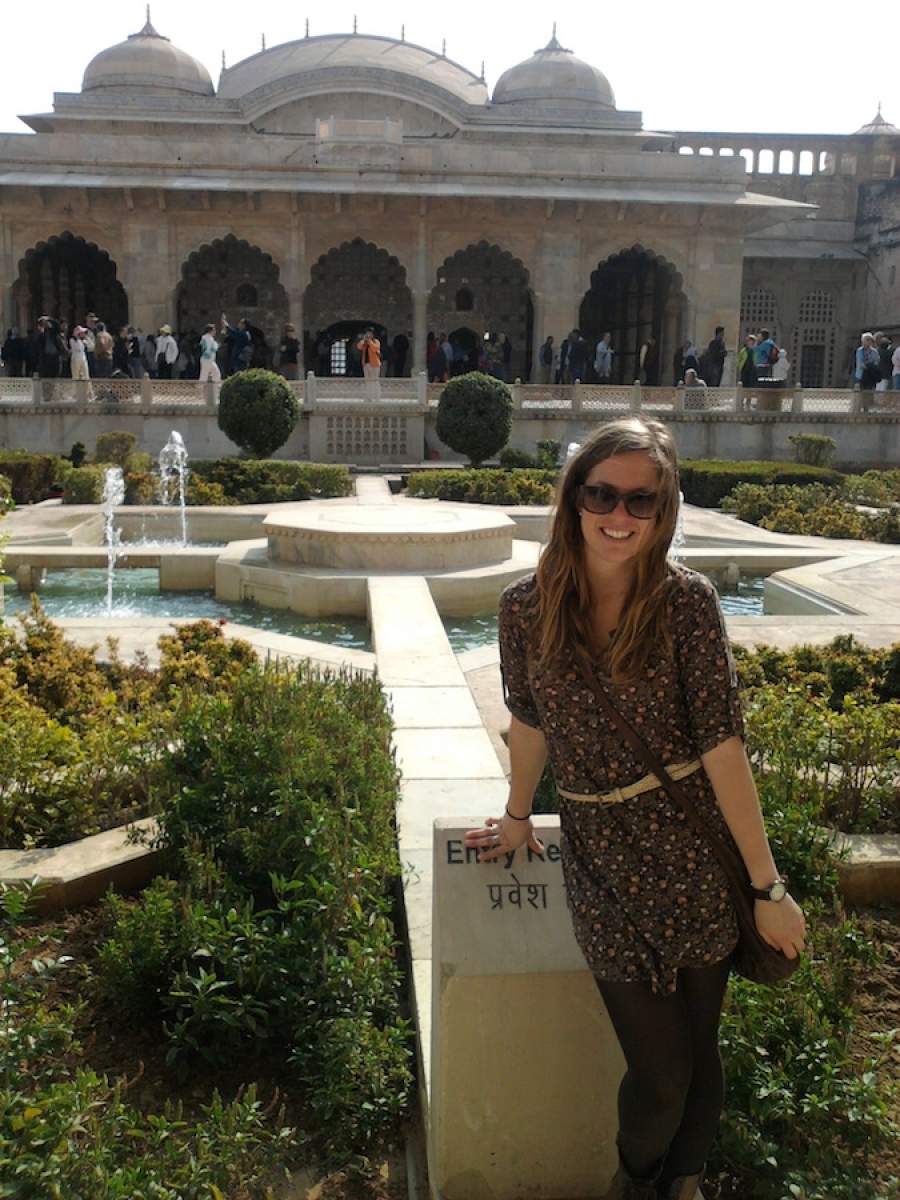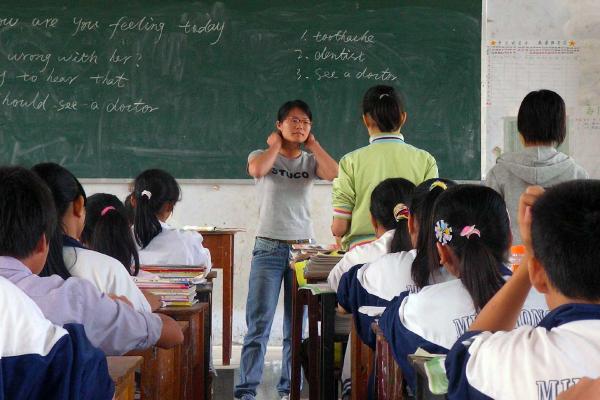Nearly half a year ago, I was walking down Gordon Street in Guelph, Ontario in the rain. It was November in Canada and the dreary drizzle, coupled with a bitter wind, firmly declared the onset of winter. At the time I barely noticed, I was so blinded with uncertainty over what I would do with my life. I was coming home from campus after submitting my honours thesis in cognitive psychology—the final ‘piece’ of the four and a half year puzzle that was my bachelor’s degree. I should have been relieved. Instead, I was facing the inevitable, “What now?”
Fast-forward to today and I’m five months into an internship in Jaipur, India, with a life that is barely recognizable from those days when I was finishing university in Canada. Living in India is remarkable—saying it’s a learning experience is an understatement.
Here, life looms right in front of your face and it’s so huge that you can’t ignore it. You have to sing, love, eat, cry, pray, sweat, dance and smile, because you never know what is coming next. Roadside chole kulche? Bring it on. Chilling with a famous cricket star? Sure. Forty plus degree weather? I’ll survive. Video game-esque traffic? I can dodge. Drinks at a palace? I’d be delighted.
Somehow this country embodies the best and the worst parts of life all bundled together—and more often than not you can’t tell which is which. My impressions of India are in a constant state of flux; even after all of the time I have spent here, I am still peeling back layers of understanding. It seems that the more I uncover, the more there is to uncover.
The experience I’m getting is a mix of something I sought out and something I could have never expected. You see, some months before I started my final semester of university, I started to wonder what I would do with myself upon graduation. I mulled three possibilities: I could get a job. Generally, it’s what you’re “supposed” to do when you graduate from university. If I’m not mistaken it’s the reason that most people opt for higher education in the first place—to better their job prospects. For me though, the thought of moving right into a full-time job in Canada—if I could even find a suitable one—was like passing up the hard-earned freedom I would be given upon graduation. I also thought seriously about graduate school, an option generally reserved for people who want to avoid getting a job. Unfortunately, I didn’t feel ready to commit to psychology—my thesis project had afforded me more than enough opportunity to run experiments on first year keeners in a stuffy basement lab.
I knew that above all, I wanted to travel. I was absolutely itching to go somewhere, despite my mother’s pleas to come home and take up residence in my parent’s basement. I wanted to leave for an extended period of time though, and I knew I would need the funds to sustain myself while doing so. In addition, I wanted whatever trip I took to have some kind of overarching purpose; it would have to be an experience that would count for something in the long run. It was these criteria that led me to seek out an organization to help me facilitate a work exchange. After investigating a number of dead ends, I found AIESEC.
Say what you will about AIESEC. What I can say is that they’re a highly human organization—they aren’t perfect by any means. What is most impressive to me is that AIESEC is run by a group of characteristically unreliable people—students—yet somehow, they still manage to get things done, at least in the long run. When I signed up to be a member, I wanted only to do an exchange and here I am. Of course, I had to jump through a few hoops to prove I was a good candidate, and I spent many a late night scouring the vast AIESEC database for jobs. I applied to anything and everything that I thought might suit me.
After too many emails to count and a handful interviews for jobs from Egypt to Russia, I found a copywriting and blogging internship in Jaipur, India. The job description was exactly what I was looking for, but it came as a package deal with a place where I had never imagined myself living. In my limited view, India was a third-world country. The picture of India that I had in my head at that time ran something like a World Vision commercial.
Still, I had the interview and considered moving to India. Whether it was out of recklessness or desperation I’m not sure, but just a few days after the day I walked home in the rain, I accepted the job. So, here I am — living in India. I guess it’s something like they say, “I wasn’t sure where I was going, but I’m glad I ended up where I did.”
Add this article to your reading list




